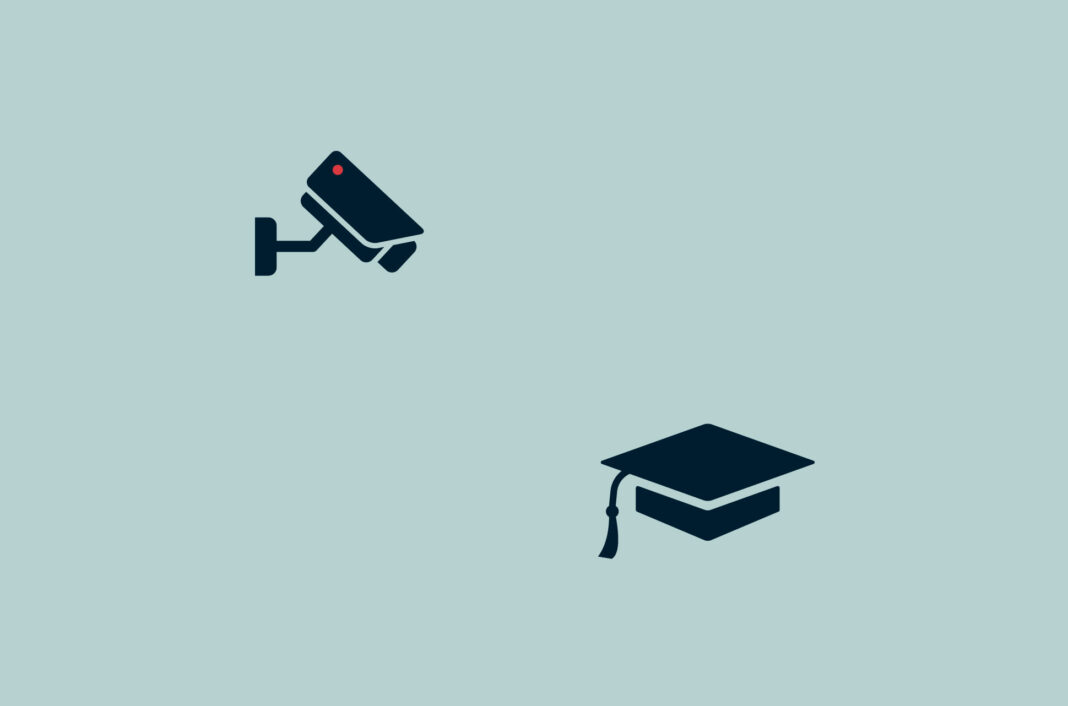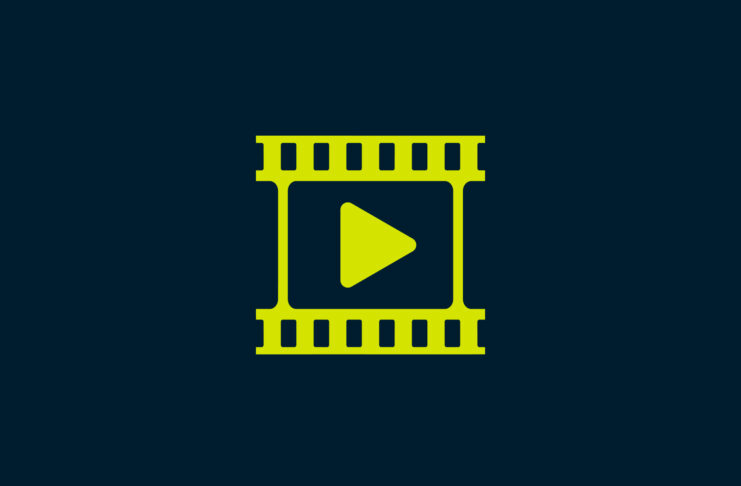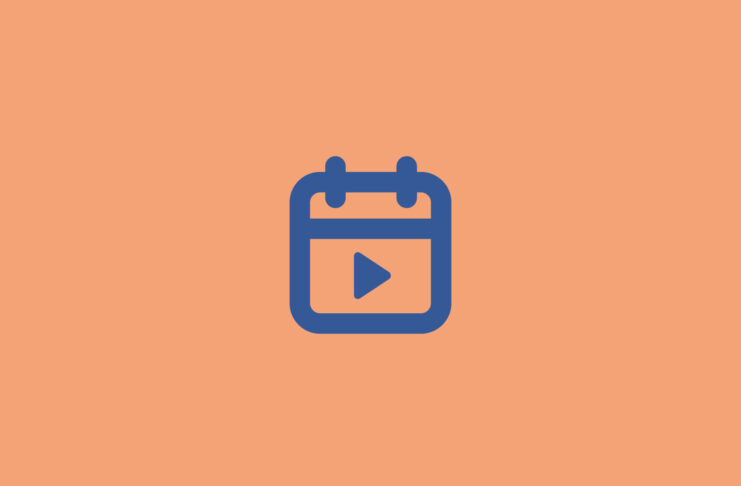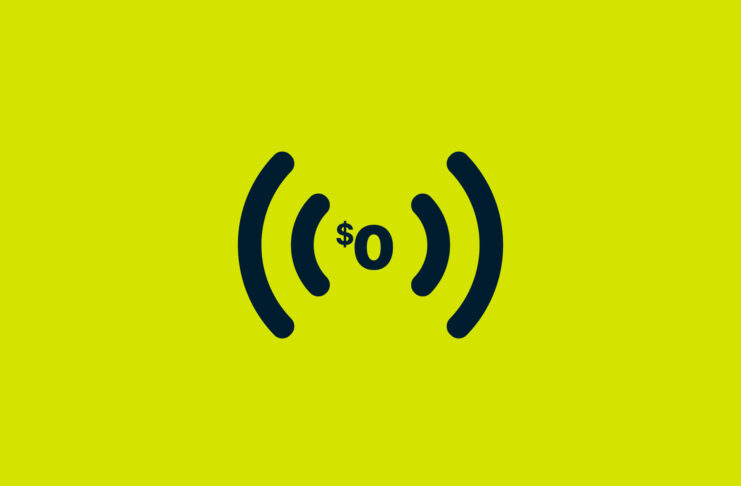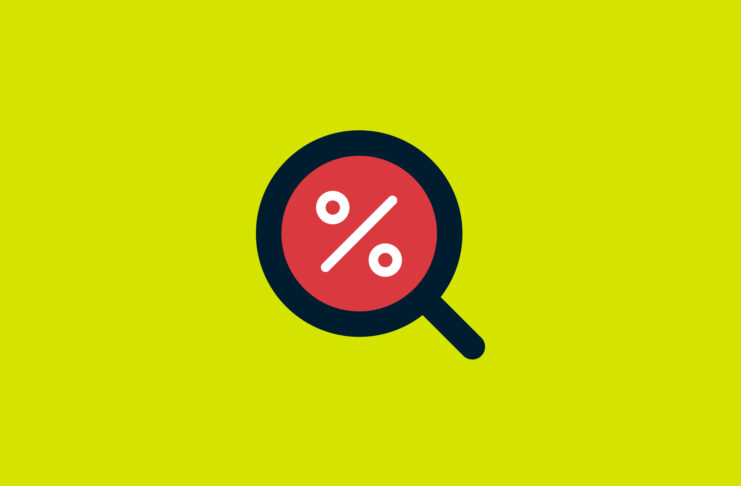As Covid-19 spread and schools across North America and Europe were forced to pivot to remote instruction and examination methods, a key concern remained unanswered. How would administrators ensure academic and testing integrity?
Meanwhile, for campuses that tried to stay open, if only partially, they had to find ways of ensuring students and campus workers remained safe.
The answer for both predicaments, unfortunately, has come in the form of increased surveillance practices—which we might not be able to shake even after Covid-19 has become a story of the past.
[Get a weekly roundup of privacy stories and hot takes. Subscribe to the ExpressVPN blog newsletter].
The rise of online proctoring
Ten medical students at the University of Dartmouth were accused of cheating on their exams recently after an algorithm determined that they had looked up answers to test questions. A university review body expelled some of the students, suspended others, and instructed that the remaining retake courses, at tuition costs of 70,000 USD.
Despite student and faculty protests, the university’s administrators refused to share further information about how the activity monitoring app it used, called Canvas, determined that the students had cheated.
Accuracy of such software is a growing concern as adoption increases. In a survey of higher education administrators, 54% of them responded saying they use online proctoring methods, while another 23% indicated they are considering using them. These include a combination of passive software tracking such as monitoring the apps and websites students visit, and video surveillance through their webcam and real-time feeds.
Read more: Bossware: How remote-work tools can be used to spy on you
The other concern is how students are expected to maintain their personal privacy. Some apps, such as Respondus (the most widely used proctoring software), can scan students’ rooms, lock computer browsers, and track eye and head movements as they take their tests. The company has drawn criticism for arbitrarily flagging students for a simple motion like reaching to get a glass of water or looking out into the distance as they think about an answer.
Higher education institutions have also issued notices seeking proposals from vendors to purchase online proctoring tools, with budgets reaching tens of millions of dollars, adding credence to the view that remote monitoring of exams is here to stay and will likely become a core part of test administration in the months and years ahead.
One of the main ethical concerns with such invasive tech is that students don’t have the chance to opt out. If they wish to pass their courses and graduate, they must accept the conditions imposed on them by the algorithms.
Health tracking on campus
And when college campuses began to shut down, administrators had to grapple with another quandary concerning programs that couldn’t be taught remotely. Students in medicine, chemistry, nursing, and other science-related fields needed to clock in laboratory hours to be able to graduate. Engineering departments had to stay open for students and researchers to complete their projects. How could they keep campuses partially accessible to students while maintaining healthcare protocols and preventing mass outbreaks?
Oakland University in Michigan introduced the “BioButton,” a coin-sized device that scans vital signs such as temperature, heart rate, and respiratory rate. It pairs with an app on your phone and indicates a “clear” or “not clear” status to help administrators manage the health of the campus. Its purpose, according to the university, is to let wearers and the school know when they are showing signs of having the virus. It’s free and optional for students to use.
Got my eye on you
Traditional proctoring is cumbersome, involving more personnel, space, and planning. While software solutions make our lives more convenient, that doesn’t mean they’re a better alternative.
One problem with more surveillance hardware on campuses keeping tabs on student health vitals and software that tracks students’ online behavior is that such practices are hard to get rid of once institutionalized.
Another issue is surveillance changes the way all of us think and behave, and as students come across more reminders of it in their daily lives—body cameras, drones, and unfamiliar software—it’s only going to add to their daily stresses.
Experienced remote proctoring? Let us know your thoughts in the comments!
Read more: The 2021 ExpressVPN essay contest is now accepting entries
